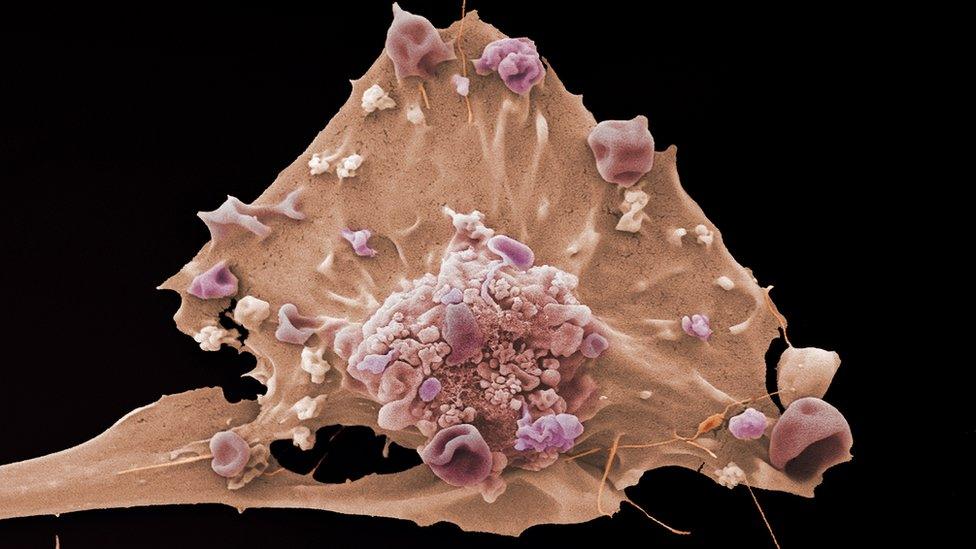Pancreatic cancer: Woman lights up street for mum and brother
- Published
Charlotte Thomas says there "doesn't seem to be any hope" when faced with a pancreatic cancer diagnosis
A woman who lost both her mother and brother to pancreatic cancer has lit her street up in the colour purple to raise awareness.
Charlotte Thomas, 44, of Cardiff, said it was wrong that both were given the same survival odds - despite being diagnosed 15 years apart.
Her neighbours lit up their homes purple on Thursday after a city landmark could not be part of a charity's light-up campaign.
She hopes it will save lives.
Three in four people who are diagnosed with pancreatic cancer in the UK die within a year.
Her neighbours stepped in as the general election meant City Hall had to cancel being part of Pancreatic Cancer UK's annual Purple Lights campaign, which sees public buildings lit purple on World Pancreatic Cancer Day.
Previous landmarks that have been lit are the Pierhead building in Cardiff, Blackpool Tower and Edinburgh Castle.
"I hope it gets people to ask questions that might save their lives," she added.
'If you met my mum, you wouldn't forget her'
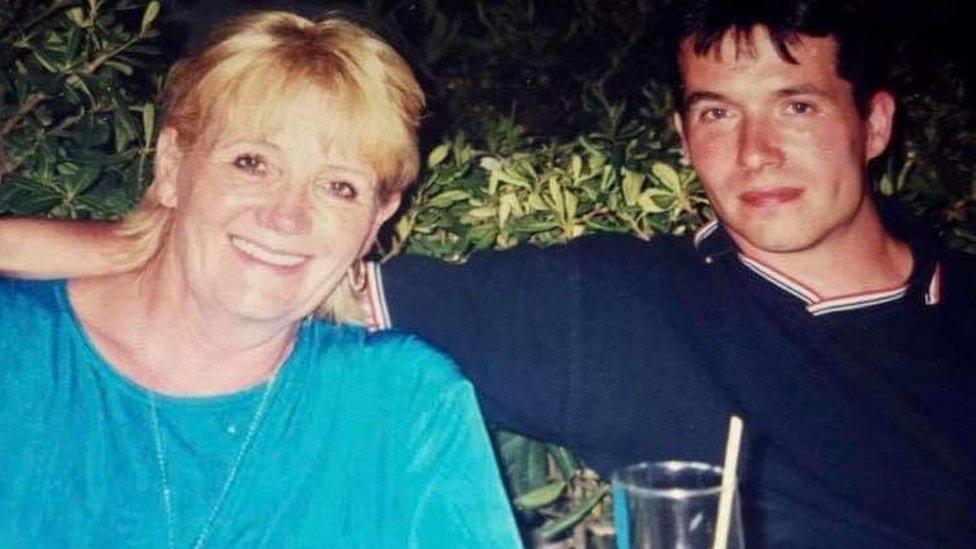
Mavis Dallinger and her son Mark Merry both died of the same form of cancer
Mrs Thomas said losing her mother Mavis Dallinger in 2001 was a "huge loss" as the entrepreneur was the "focus and centre of our family".
"If you met my mum you wouldn't forget her. She was a unique person and always the life and soul of the party," she said.
Ms Dallinger, who worked with people with special needs, was 59 when she died.
"It was just under a year for my mum, which when you look at the statistics of people passing away within a few weeks we count ourselves quite lucky but she suffered in that year," said Mrs Thomas.
"She always imagined herself old and grey so I think that's a big thing to feel cheated of your future, it has a massive impact on the person diagnosed and the ripple onto the rest of the family."
'He wanted to see his children grow up'
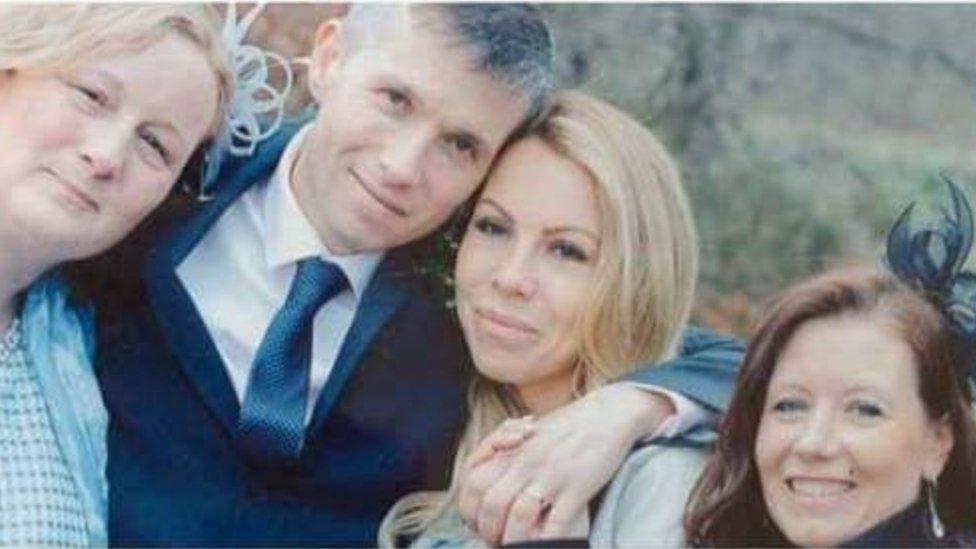
Mark Merry was diagnosed 16 years after his mother
When her brother was diagnosed just before his 50th birthday, Mrs Thomas said there was a lot of fear in the family about what they knew would follow.
"He was so fearful and I think that one of the biggest hurdles for my brother was the psychological effect of the diagnosis" she said.
"I don't think people realise the impact it can have on suddenly having your future taken away from you, particularly with pancreatic cancer, where there doesn't seem to be much hope."
Mr Merry survived for 21 months after his diagnosis and Mrs Thomas said this was a testament to his strength of character because "he did not want to die".
"He was so fit and active," she added. "He was into mountain biking, he wanted to see his children grow up and his grandchildren grow up and I think he felt very cheated in the same way my mum did."
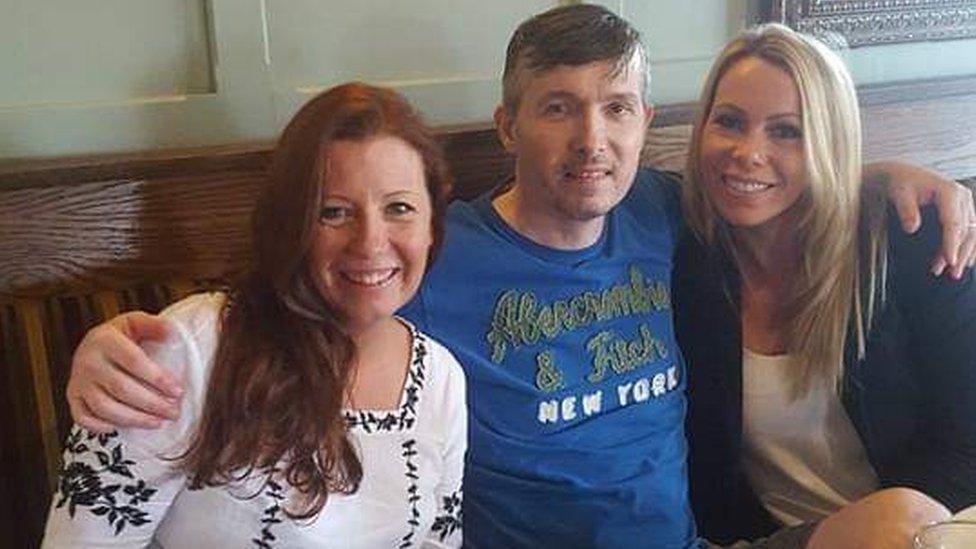
Charlotte (left) and her sister Katrin (right) helped raise £10,000 trekking Machu Picchu
Pancreatic cancer only received 1% of the cancer budget between 2007-2008 and 2016-2017, external despite being the deadliest of the most common cancers.
"There's so much research into prostate and breast cancer and you can see those fields are the ones where the research and the survival and the diagnosis and the treatment have actually soared," said Mrs Thomas.
Pancreatic Cancer UK said about 500 people in Wales are diagnosed with the disease each year.
The charity's chief executive Diana Jupp said it was "unacceptable that Charlotte's mum and brother faced the same odds of survival" despite being diagnosed 15 years apart.
"The huge strides which have been made in improving survival for other cancers are proof that the UK can do so much better and it's unacceptable that people with pancreatic cancer face such deadly odds."
- Published27 November 2018

- Published12 September 2019

- Published12 November 2019
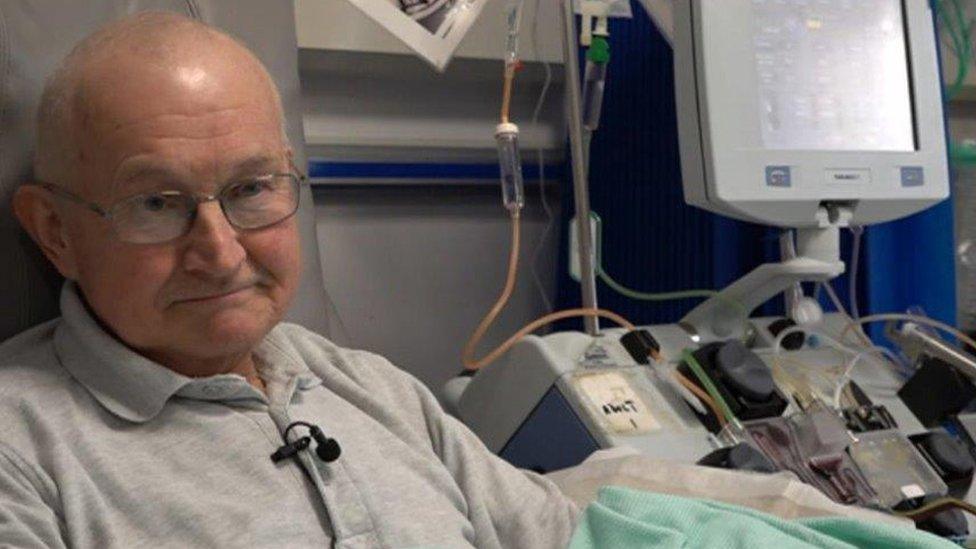
- Published1 August 2018
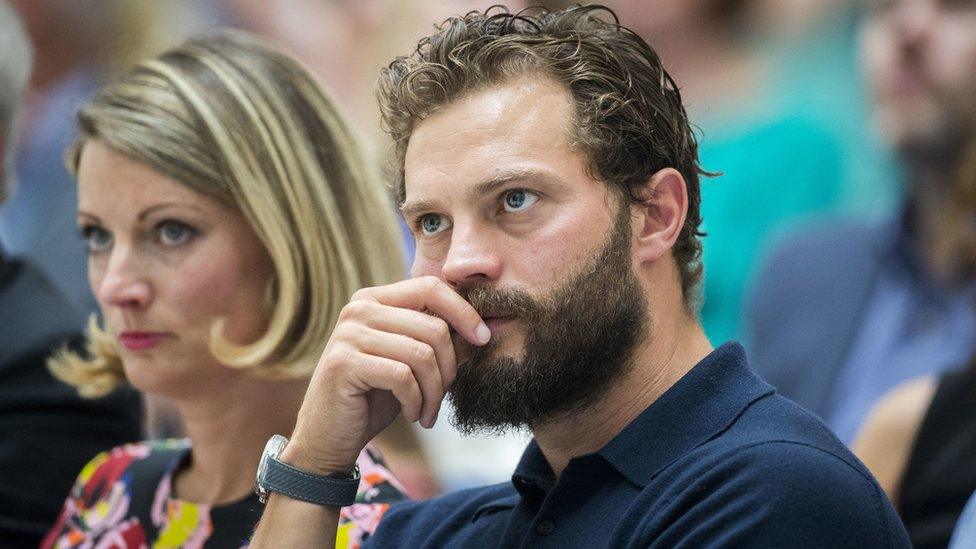
- Published9 April 2019

- Published21 October 2019
